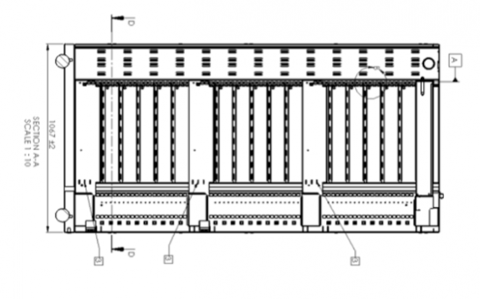The Open Compute Project Could Make Big Data More Affordable
Facebook seems to have shifted its long-running Open Compute Project (OCP) into a whole new gear. At this week’s Open Compute Summit in Santa Clara, the social network and its partners announced all sorts of initiatives designed to further “open source” data-center hardware, including a common daughtercard specification that can link virtually any processor to the motherboard (referred to, with perhaps a touch of snark, as “Group Hug”). Indeed, one of the key themes at this year’s Summit has been disaggregation, or designing rack-mounted servers where the I/O functions, compute, and storage can be swapped out and upgraded separately. OCP servers are also designed to be “vanity free,” with stripped-down motherboards, storage and rack solutions that can be built by anyone. In theory, the resulting products are also energy efficient, with significant cost savings over proprietary platforms. There’s a chance that OCP hardware could catch on with the tech world at large: for example, Hyve Solutions recently announced that it had begun selling an Open Compute suite of data center solutions to the federal government as part of GSA Schedule 70. And if the federal government opens its wallet, can enterprises with a need to build out their in-house data centers be far behind? The short answer is “no,” especially if a CIO or other administrator can demonstrate that OCP hardware comes with a reduced cost. Over the next year, if analysts prove correct, tech companies will spend sizable amounts of money on Big Data, mobility, collaboration and cloud technologies—and if they choose to keep the support infrastructure for those initiatives in-house, they’ll need to spend handsome amounts on hardware. For larger firms, opting for OCP over proprietary platforms could save on the bottom line while giving their in-house IT pros the flexibility to customize in response to changing needs. (The other option, of course, is for these companies to simply sign a contract with a cloud provider, which will spare them the headache of maintaining in-house IT infrastructure. But those cloud providers also need hardware for their data-centers, which could send them straight to OCP designs.) That’s not to say that customized hardware and OCP designs will soon dominate the data center. Several IT giants have a vested interest in ensuring that companies continue to run their proprietary hardware—the “converged data center” initiatives of the past few years, in which a single vendor sells various data-center components as an interlocking whole, are basically an attempt to keep client firms locked into a single platform for the foreseeable future. But if OCP gains additional traction, it could give companies more options as they attempt to wrangle down the costs associated with supporting Big Data. Image: Open Compute Project


